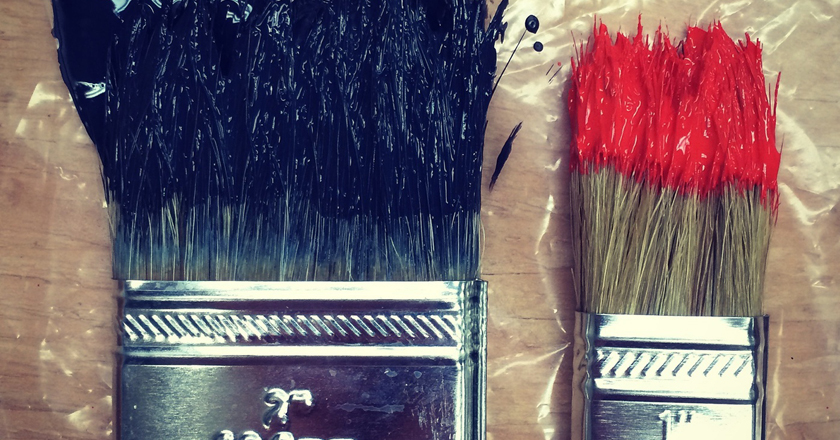
Solvents in paints and varnishes
Solvents are widely used in the industry of paints and varnishes, because they offer different applications throughout the workflow.
On one hand, the solvents reduce the consistency of paints and varnishes. This reduction allows paints and varnishes better flow along the surface where applied and cover all parts of the same, avoiding remaining unpainted areas. Subsequently, due to the volatility of the solvents, they disappear along the drying process.
On the other hand, solvents cleaned machines and tools used in the painting process so that they are clean and ready for the activity again. It is crucial that this process is carried out with the appropriate solvent, because if not done so, brushes and other utensils can be damaged.
Solvents increase the fluidity of paints and varnishes, and in turn serve to clean the tools that have been spotted throughout the painting process.
The most commonly used solvents in paints and varnishes are:
- Acetone: is presented as a colorless, flammable and volatile liquid, which is obtained from calcium acetate, acetic acid or gases from oil. It has many uses, most notably its use as solvent to remove dry paint. Moreover, it is a great stripper.
- Acrylic solvent: solvent designed for acrylic paints.
- Epoxy solvent: a solvent for epoxy paints and is also used for cleaning utensils that have been used with this type of paint.
- Nitrocellulose solvent: a special solvent which is commonly used as synthetic spray paints are applied. It is one of the toughest and providing greater evaporation.
- Retardant solvent: solvent suitable for activities that required a high exposure time. Slows the evaporation of other solvents.
- Turpentine: composed mainly of a mixture of hydrocarbons, it is a volatile, colorless liquid produced by distilling the resin. Possibly the most widely used solvent.
- Universal solvent: useful for all types of paints as well as for cleaning tools. Possibly the best choice for painting with synthetic enamels.
- White Spirit (Nafta 15/20): petroleum product used as solvent in synthetic paints and textile processing. It is suitable for both the dissolution of the pigment as for cleaning utensils used in the painting process.
Check here to see other products used in the industry of paints and varnishes and contact us for any further information.
